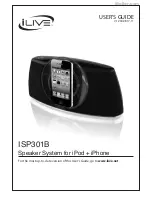
A
CTIVE S
TUDIO MONITORS
Taking full advantage of significant advances in digital speaker measuring techniques such as Klippell™ symmetry and non-
linear distortion analysis, laser scanning interferometry, acoustic CAD simulation and our own cutting edge acoustic technologies,
Tannoy engineers have developed two new active monitors. The new Precision D range incorporates the latest Tannoy Dual
Concentric™ driver and WideBand™ Technology to deliver near field monitoring speaker designs that set new standards of
acoustic performance and accuracy.
Precision D active monitors provide superior bandwidth, significantly low levels of distortion, very smooth response, extremely
accurate phase control, high sensitivity levels and input source flexibility. Add in a comprehensive calibrated EQ facility for
mid / near / close field working in full / half /quarter and eighth space environments, midband and high frequency trim shelving
controls, a choice of power and cabinet sizes, analogue and digital input trim facilities, and user requirements can be satisfied
for all listening environments and applications.
Tannoy’s core technology, the Dual Concentric™ is unlike ordinary drive units in that it is effectively two drivers, properly
merged into one. The high-frequency unit is positioned on the back of the low frequency driver so that they are on the same
axis. As a result sound energy is propagated from the same point and delivered through the centre of the low frequency cone
providing a true point source. This integrated approach provides a constant time delay over the frequency spectrum offering
better transient performance and sound quality with better harmonic alignment than a displaced source monitor design. The
crucial benefit at the mix position is the delivery of a more natural and cleaner sound with greatly enhanced intelligibility.
Characteristic of the Dual design is a very wide 'sweet spot' with an exceptionally even response throughout the listening
area and extraordinary transient response. This phase accurate Tannoy designed drive unit has, for all these reasons, been
the choice of professional studio engineers for decades.
Tannoy has been at the forefront of developing loudspeakers with WideBand™ performance. Extending the high frequency
roll-off out to 51kHz corrects the time or phase response at the upper end of audibility, resulting in enhanced accuracy and
‘air’, improved clarity within the essential mid band area, and even enhancing definition of low frequencies. Tannoy WideBand™
Technology is an essential component of the Precision monitor design delivering increased tonal accuracy of the individual
instruments in the recording process - a mix-critical factor allowing the best EQ and placement decisions to be made.
Tannoy engineers have researched ways of dealing effectively with the acoustic effects of mid, near and close field listening
distances, in order to compensate for the relative size and distance of the acoustic source and resultant spherical / plane
wave dilemmas. Additionally, the effect of boundaries near a monitor speaker, such as walls, support tables and mixing
console surfaces can change the air load on the low
frequency cone piston and consequently the radiating
efficiency in the 100Hz to 800Hz region.
A set of DIP switches on the rear control panel of the
new Precision D active monitors allow the selection
of an optimum speaker response for real life and often
difficult monitoring situations so that the frequency
response at the listener’s ears is always as linear and
flat as possible. Optimisation can be preset for far
field (>2m), mid field (1~2m), near field (~1m) and
close field (<0.5m) situations in combination with free
space (4pi), half space (2pi), quarter space (pi) and
extreme eighth space (pi/2) corner situations. Precision
D Active monitors can therefore be optimised for
varying listening distances in difficult acoustic spaces;
varying meter bridge positions, against and adjacent
to walls or reflecting surfaces, in corners, in corners
on shelves or brackets, table top / space restricted
PC/Mac based sound editing environments and stand
mounted or soffit mounted configurations. (see graph
overlleaf).




















